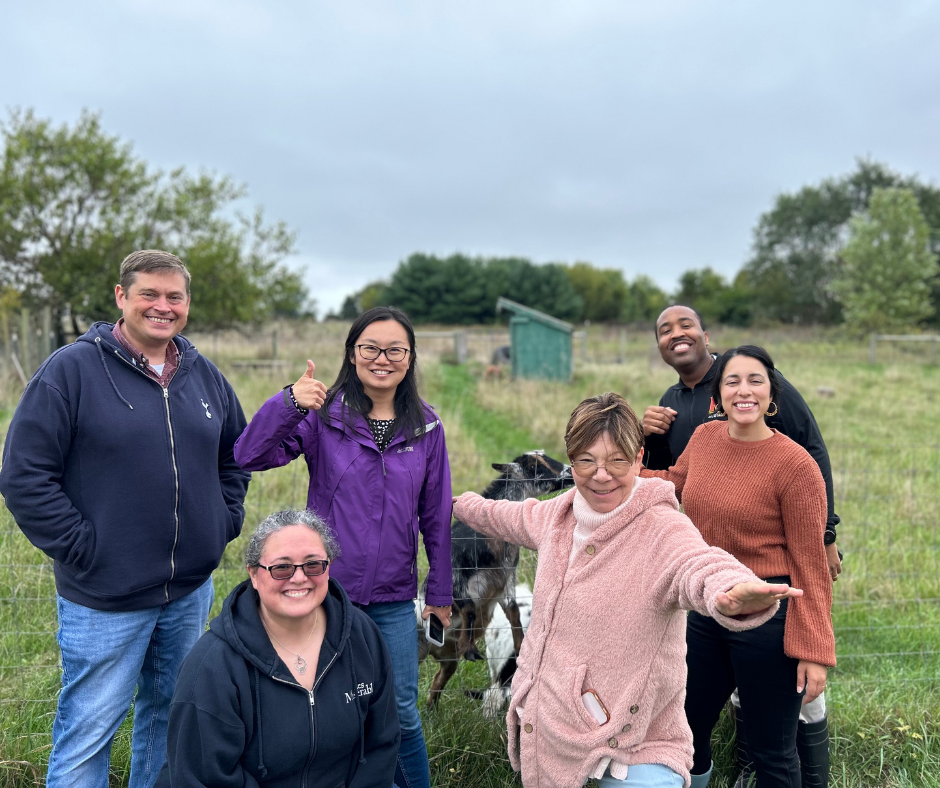Spotlight on Loyola Maryland's School Counseling Faculty: Shaping the Future of School Counseling

Aspirations for the Counseling Profession
Focused on promoting the school counseling profession, Loyola Maryland's faculty members share a common vision: to prepare pre-service counselors to meaningfully impact the lives of youth at both an individual level while also creating changes within system so that all youth may thrive.
Stephanie Durnford, Assistant Clinical Professor, emphasizes the importance of advocacy.
"One of my biggest hopes for the field... is in taking that advocacy role and being
able to make changes, not just in a 1 on 1 individual capacity but also on more systemic
levels,” she says. Durnford’s clinical work has focused on mindfulness and strength-based
strategies to help clients navigate changes in behavior, thinking, and processing
trauma.
Gayle Cicero echoes Durnford’s sentiment and adds she hopes "all children and teens
will have access to preventative services, especially post-pandemic, with isolation
and the gaps that they experience socially."
Kharod France adds that it’s important for counselors to preserve the human side of
counseling, stating, "The impact that I hope to make is really a focus on the humanness
that we as counselors bring to the table."
The Unique Identity of Loyola's CACREP Counseling Program
Gayle Cicero, clinical coordinator and Assistant Clinical Professor, underscores the distinctive quality of Loyola's CACREP counseling program, stating, "I would like to be part of a team that creates a whole new crop of professionals that love the work... Not just advocacy at the student level but within systems that would have what it takes to challenge some of the older models and systems that aren't working well for kids."
Joesph Sicking, Chair of the Education Specialties Department, sees CACREP as the
unifying force that gives identity to the counseling profession. "CACREP is what allows
us to set out the core direction of the field, really committed to the well-being
of folks in that profession."
In addition, school counseling faculty value the work they do to prepare the next
generation of counselors. Jenn Watkinson, Program Director, has a commitment to teaching
that is evident in her efforts to help students apply the knowledge and skills they
are learning throughout the program.
"I love teaching. As program faculty we are constantly evaluating what we do to better
the preparation experience for our graduate students,” she says. Stephanie Durnford
expands upon how faculty at Loyola prepare their students, noting, "My job is not
to make many Dr. Durnfords... it really is to help people find their own voice."
Redefining the School Counselor's Role
Joesph Sicking's nuanced view redefines school counselors as practitioners with a
holistic approach, stating, "It is a really complicated thing to pull off well...
pursuing public health outcomes through developmental education."
Dr. Qi Shi, Professor, sees school counselors differentiating themselves through a
focus on prevention and wellness, stating, "We use a tiered system or multi-tiered
system to prevent more serious problems from coming up... promoting the academic,
social, emotional, and career development of students." This belief comes to life
through her work with the Center for Equity, Leadership, and Social Justice in Education.
Dr. Shi’s work with the center provides a collaborative space to the Loyola community
for engaged research, and exposure and promotion of impactful work.
Research and it's Impact on Counseling
Kharod France is a Clinical Assistant Professor for the program. his research interest in supervision reflects a commitment to enhancing the support provided to interns in school settings. He states, "One thing that I really focused on is supervision... training school counselors to be better supervisors overall."
Dr. France has extensive experience instructing and supervising counselors in training
and has research interests that include clinical supervision and exploring factors
that impact counselor development.
Qi Shi's research spans the personal, social, and academic development of underrepresented
student populations, emphasizing the global perspective in counseling. She says, "I'm
hoping to be able to make more efforts to contribute to the development of the counseling
profession globally."
Loyola Maryland's School Counseling Department stands out not just for its comprehensive
curriculum but for its faculty's commitment to shaping compassionate, skilled, and
visionary counselors. With a focus on advocacy, holistic development, and impactful
research, Loyola is producing professionals ready to lead the way in addressing the
evolving challenges in the field of school counseling.
To learn more about our CACREP accredited School Counseling program, click here.